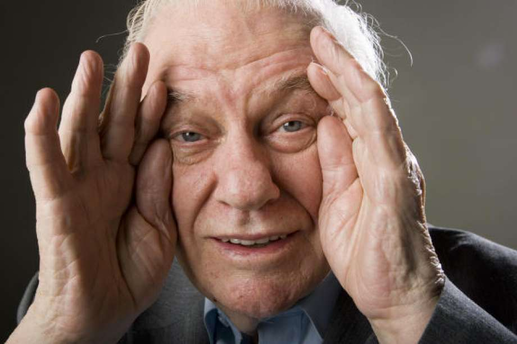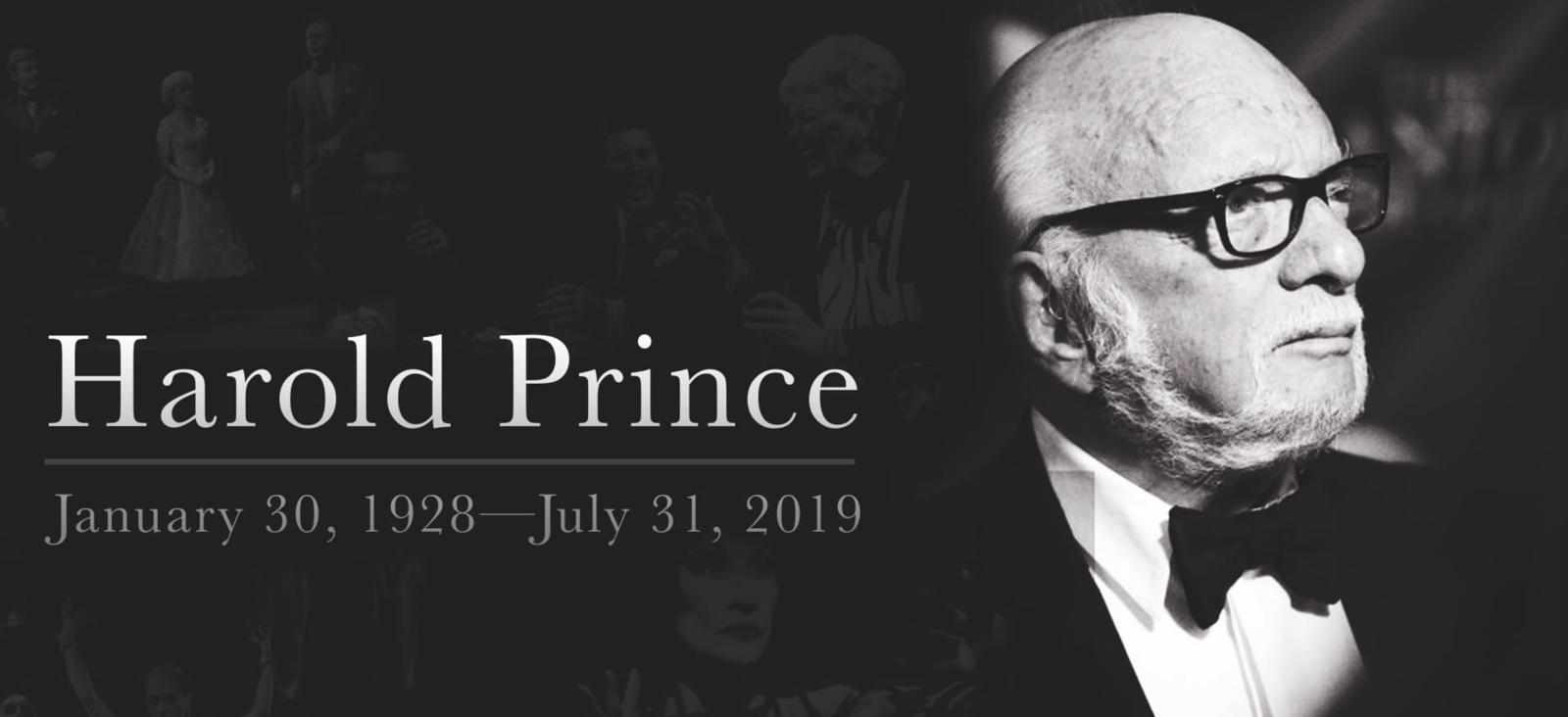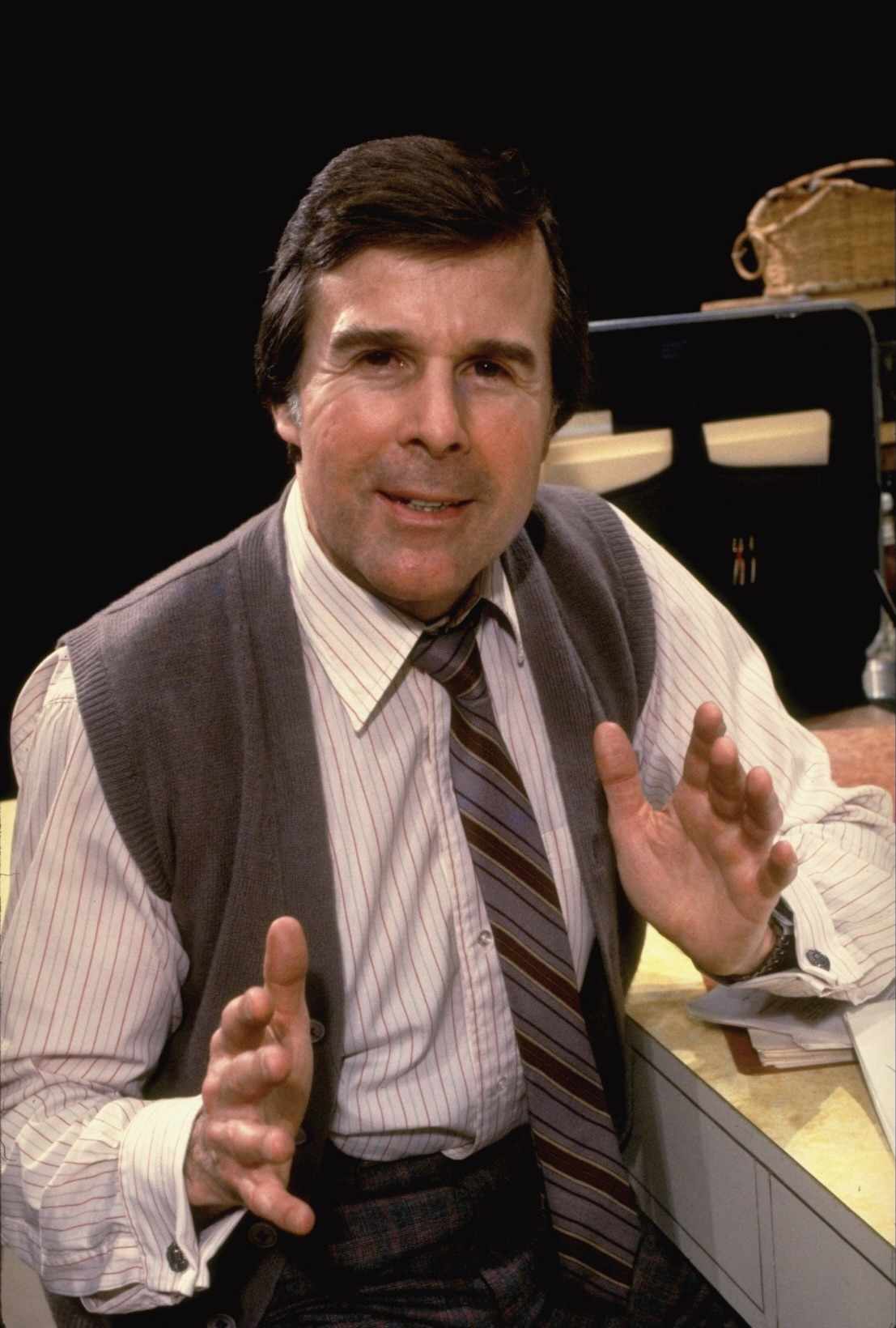
March 17, 2023: Theatre Yesterday and Today, by Ron Fassler
"I was terribly spoiled," Jerry Herman once said. "I thought you just wrote a musical and it ran for seven years."
Can you blame the man? In 1969, with the opening of Dear World, Herman held the honor as the first of only two composer-lyricists to ever have three shows on Broadway at the same time (the other is Stephen Schwartz). With the world his oyster, Herman chose at this point to musicalize French novelist and playwright Jean Giraudoux's La Folle de Chaillot, a 1943 comedy better known in its English translation by Maurice Valency as The Madwoman of Chaillot. First done on Broadway in 1948, Herman had fond memories of performing it in college in the '50s and chose it for his next musical and, for the first time, initiated a project himself. After his previous successes with Milk and Honey, Hello, Dolly! and Mame, all in quick succession between 1961-66, he had the clout. In that regard, Dear World seemed filled with promise, especially with Angela Lansbury set to star in her return to Broadway since winning the Tony Award for Mame (she would eventually receive six Tonys over seven decades). And yet, Dear World failed to charm audiences and critics and closed after plowing through its $2 million advance sale in a few months, only making it to 132 performances, though that was closer to 200 due an extended preview period (with that number differing in various sources between 45, 49, 57 and 59—make of that what you will). The show might have been forgotten entirely, save for its original cast recording with Lansbury in the best voice of her career (her own opinion). And for those who've listened to it with guilty pleasure for more than fifty years, theatre scholar Ethan Mordden poetically put it best when he wrote: "It's the kind of score that buffs adore by themselves on a dark night."

Count me among them. There's something about Herman's work here that has a mesmerizing quality to it and not only due to Angela Lansbury's full throttle commitment to the Countess Aurelia. With Dear World, Herman did what he does best, writing for a specific star (usually a woman) with passion and honesty. That's not to say the score doesn't have its clinkers, especially an excessive title tune that from its opening downbeat tells you it's got something important to say (um... it doesn't). And the comedy song “Garbage” pretty much lives up to its name. But those ballads! The lushness of the ingenue's "I Never Said I Love You" and the Countess's "Each Tomorrow Morning," "And I Was Beautiful," "I Don't Want to Know" and "Kiss Her Now," are ravishing.
So then why with one of the great ladies of the musical theatre as its star, in addition to a fine score and a story that already worked well as a straight play, did Dear World fail so completely? In this case it was two-fold. First, the years had not been kind to The Madwoman of Chaillot. In post-war 1948, even though nuclear annihilation was a fear on peoples' minds, they were still willing to buy whimsey. This was a much harder sell in 1969 with disillusionment over assassinations of world leaders and the conflict in Viet Nam. The second thing was that Herman had originally envisioned it as an intimate musical with a small cast. But its producer Alexander H. Cohen (the H was for hubris), without consulting the creative team, booked the 1,600 seat Mark Hellinger Theatre where My Fair Lady had run for six years. Cohen's decision also had a lot to do with Lansbury contracted to a $5,000 a week salary plus a percentage of the gross and, according to biographer Martin Gottfried in his 1998 Balancing Act, rumored to be paid ten weeks' salary up front! A lot of money a half-century ago.

Perhaps different writers than Jerome Lawrence and Robert E. Lee, famous for their 1955 play Inherit the Wind, could have done better in adapting Dear World. Chosen for having previously worked with Herman on Mame, the team also adapted Patrick Dennis's comic novel Auntie Mame into a stage success in 1956. In fact, a good many of the Mame team were recruited in hopes that lightning would strike twice. Philip J. Lang and Donald Pippin were hired to do the orchestrations and musical direction. Jane Connell (Mame's Agnes Gooch) was brought on to play one of Countess Aurelia's eccentric friends. Gene Saks, who had steered Mame to hit status, intended to direct, but had to bow out due to other commitments (which turned out to be a blessing in disguise). When the assignment went to Lucia Victor, eyebrows were raised due to it being her first-time solo directing gig. Victor's prior credits were as a Broadway stage manager, then assistant to fabled director and choreographer Gower Champion. Assuredly, this hiring came after a long list of more tried and true names took a pass. And when Victor soon found herself clashing with the creative team once the show began ballooning from the intimate musical first envisioned to a cast that would eventually number thirty-eight, she was fired two weeks into rehearsal before the show even had its Boston tryout. Peter Glenville, a well-regarded Brit, came in at Lansbury's request (they were friends), but it was only a stopgap, as he had a prior commitment that meant another director would be needed. Joe Layton then took over, only on the condition he himself could replace choreographer Donald Saddler. Another reason why the preview period stretched on for as long as seven weeks. Skilled book writer Joe Masteroff (She Loves Me, Cabaret) came in to help, but to no avail. Lansbury was quoted as having said, "I promise you that the show we opened with in Boston had far more quality in the first five minutes than we ever achieved with all the changes."

For those unfamiliar with Dear World's plot, its central character, the Countess Aurelia, is a faded beauty who has seen better days in her eighty years. But nothing tamps down her optimism, for she sees beauty in all things. When a group of prospectors and businessmen discover that oil flows under the streets of Paris, it is Aurelia who vows to destroy them before they can mine and tear down huge swaths of her beloved city where she lives under the streets in a sewer tunnel. That's it. It's not complex, there's little subtlety, it wears its politics on its sleeve, and a suspension of disbelief is essential to whether you buy a single minute of it. Even a star-studded film version of The Madwoman of Chaillot, updated to the current time, couldn't muster any enthusiasm, opening only a few months after Dear World closed. This in spite of Katharine Hepburn leading an international cast that included Charles Boyer, Yul Brynner, Richard Chamberlin, Edith Evans, Danny Kaye and Giulietta Masina. If you're thinking of seeking it out let me save you some time: it stinks.

As for trying to fix Dear World, many have tried. I saw a reworking with a new book by David Thompson in 2000 that played in Connecticut and featured Sally Ann Howes. Sadly, cutting it down to a chamber-sized musical with a small cast didn't do much to change its unworkability. Similar productions were done in London in 2013 led by Betty Buckley; the York Theatre in Manhattan with Tyne Daly in 2017, and a workshop in 1998 at the Roundabout with Chita Rivera, which didn't go anywhere.
But now there is a new staged version at City Center's Encores! starring a well-cast Donna Murphy (March 15-19). It's the first chance to see Dear World with a full orchestra in fifty-four years which is exciting to this longtime playgoer who regretfully missed seeing the original by a matter of weeks. I had read the reviews and with the cheapest seat at $4, I wasn't sure I wanted to waste my money (I know... I know). After Lansbury won the Tony in April of 1969, I still hemmed and hawed, but by the end of May, it was gone. So, when conductor Mary-Mitchell Campbell picks up her baton to lead the overture, I'll be there to luxuriate in Philip J. Lang's orchestration played by 28-pieces (in a $75 seat—upstairs yet). As to what particular version of Dear World this will be is anyone's guess. With so many versions of the book and songs added and subtracted over time, this one is apparently pieced together from an amalgam of sources (ten different scripts were consulted). Doesn't matter really. Everyone in attendance will be there for the songs.

In closing, a return to Angela Lansbury. Four years after Dear World was but a dim memory, she made an appearance on The Julie Andrews Hour and chose to sing one of her ballads from the show, "I Don't Want to Know." She performs it seated in a chair, beginning the song simply, almost talk-singing. Then realizing she might need a little extra support for the bigger notes to come, she makes a slight shift in her body as a way to ground herself before the upcoming key change. When it arrives, she slowly becomes more ferocious, building to its crashing climax. No tension or histrionics, just a superb rendering of the song. And all of it seated in a chair. Any singer worth their salt will tell you how difficult that is to support and sustain high notes. But Lansbury knows exactly what she's doing. See for yourself (and Steve Lawrence is sitting next to Julie, just so it doesn't drive anyone crazy who that is).
For my memories all are exciting
My memories all are enchanted
My memories burn in my head with a steady glow.
So if, my friends, if love is dead
I don't want to know.
After Dear World, Jerry Herman endured the indignity of his next two musicals running less than two months each. Both Mack & Mabel (1974) and The Grand Tour (1979), met premature ends, in spite of some of his very best music. It would be almost twenty years from 1966's Mame, but with 1983's La Cage Aux Folles, Herman returned to the hit column in a big way. And though he lived another thirty-six years, he never wrote another new score for Broadway, choosing instead to go out on a high.
And if any of this inspires you to grab a last minute ticket to the Encores! Production of Dear World at City Center, you can try at nycitycenter.org. It runs through Sunday March 19th.
If you enjoyed this, please check out Up in the Cheap Seats: A Historical Memoir of Broadway, available at Amazon.com in hardcover, softcover and e-book. To receive all future columns by email, hit the blue FOLLOW button above and feel free to comment below or write me at Ron@ronfassler.org.





















Write a comment ...